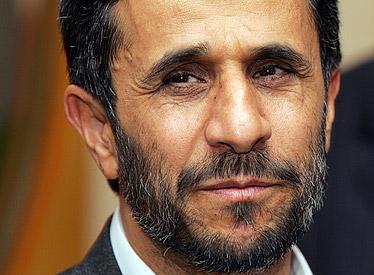David Ignatius's May 15 Washington Post column, "The Squeeze on the Middle East's Moderates," is yet another manifestation of American elites' fallacious and increasingly dangerous tendency to blame Iran for all of the troubling developments in the Middle East. The moderate "center" of Arab politics is portrayed as "under siege" in Lebanon, Iraq, and the Palestinian territories by forces variously described as "Iran's proxies," "Tehran's friends," and "Iranian-backed extremists." This overgeneralization of the many complex problems the United States must confront in the region is a recipe for Middle East policies that ignore important local factors driving upheaval in the Middle East. In order to counter Iran's influence, it is essential to address each of its "proxies" on its own terms. Iran does provide substantial financial and military assistance to militants across the Middle East that oppose the United States and Israel, and it seeks to use them as proxies to weaken U.S. influence in the region. However, lumping together disparate Arab political movements as "Tehran's friends" glosses over their root causes and offers a grossly oversimplified prescription for dealing with them. Neither Hezbollah nor Hamas nor the Sadrist movement originated in Iran; all were formed due to local grievances and achieved power by addressing those grievances. Hezbollah arose in opposition to Israel's occupation of southern Lebanon and the political and economic exclusion felt by the Lebanese Shiite population. Hamas emerged during the first Palestinian intifada against the Israelis as a religious alternative to Yasser Arafat's exiled Palestine Liberation Organization. Moqtada al-Sadr and the Mahdi Army gained support because they embodied the nationalistic aspirations of Iraq's long-repressed urban Shiites. What all three of these movements have in common is that they have been able to solidify the loyalties of local constituencies. Hezbollah, Hamas, and the Sadrists provide jobs, homes, medical care, and leadership to destitute populations who have suffered malign neglect and oppression, often at the hands of governments aligned with the United States. It is the loyalty of these underprivileged populations, gained through effective local leadership and measures to alleviate everyday suffering, that accounts for their rise. The leaders of these respective groups can and do channel popular discontent into support for their own violent political agenda, but it must not be forgotten that it is the effective provision of services and support to local populations that form the foundations of these militant groups.
There’s More to Middle East Extremism Than the Iranian Boogeyman

